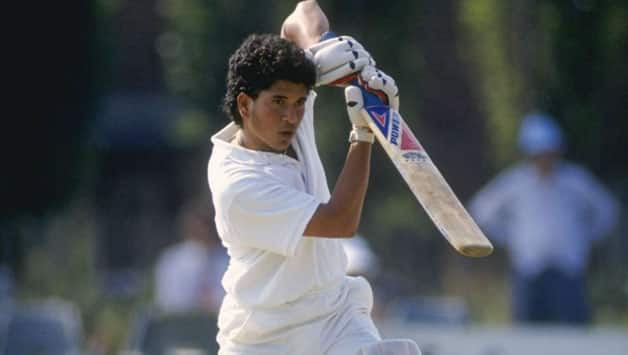
Rudolph Lambert Fernandez
(Rudolph Lambert Fernandez is an India-based writer, currently working on a non-fiction book that celebrates batting greatness in cricket. His Twitter handle is @RudolphFernandz)
Written by Rudolph Lambert Fernandez
Published: Apr 24, 2013, 10:52 AM (IST)
Edited: Apr 24, 2013, 10:52 AM (IST)


Tendulkar’s first innings are naturally more readily lauded. But his second innings too deserve credit. Sometimes, he has seen the entire line-up come and go © Getty Images
By Rudolph Lambert Fernandez
‘Tendulkar’s innings are monuments to his genius without being landmarks in the history of Indian Test cricket’ – Men in White: A Book of Cricket by Mukul Kesavan
That sounds right. It even feels right. But is it?
A segment of Sachin Tendulkar’s critics, especially those compelled to concede Sachin Tendulkar’s crucial contributions in One-Day International (ODIs), are less generous about his heavy-lifting in Tests. Are they right about Tendulkar’s legacy in Test matches? Has he really been playing, more or less, for himself?
No batsman, however great, can be solely responsible for a Test win or a loss. Now, if that batsman accounts for 10% of the team score, he is good value. If he accounts for 20% he is very good value. But if he has often accounted for about 30% hasn’t he been building landmarks?
Of course the team didn’t always pull together to ensure a win; many of these matches ended as losses or draws. But a closer look reveals how a single ‘bat’ has frequently carried the burden of three, four, even five ‘bats’.
Critics swoon at a second innings performance, almost as if the first innings were a meaningless exercise. But the first innings lays the foundation. It builds momentum.
Tendulkar’s first innings are naturally more readily lauded. But his second innings too deserve credit. Sometimes, he has seen the entire line-up come and go.
In August 1990, India scored 343 in their second innings against England at Manchester. Tendulkar scored an unbeaten 119 — 35% of the team score. He was just 17 then.
In March 1998 against Australia at Chennai, Tendulkar scored an unbeaten 155 in the second innings — 37% of the team score.
In February 1999, India scored 306 in their second innings against Sri Lanka in Colombo. Tendulkar scored an unbeaten 124 — 41% of the team score.
In December 2008, India scored 387 in their second innings score against England at Chennai. Tendulkar scored an unbeaten 103 — 27% of the team score.
In November 2009, India scored 412 in their second innings against Sri Lanka in Ahmedabad. Tendulkar scored an unbeaten 100 — 24% of the team score.
In December 2010, India scored 459 in their second innings against South Africa at the Centurion. Tendulkar scored an unbeaten 111 — 24% of the team score. He was 37 years old and had been through a punishing schedule of playing cricket around the world for 20 of those years.
Is it right to single out only Tendulkar for India’s defeats or draws? He has scored a hundred roughly once every four Tests — 51 tons from 198 Tests.
Tendulkar is understandably a shadow of the batsman he once was. But the triumph of Indian Test cricket since 1989 is a story of how vital he has been to the team. Today, he is within a whisker of the unprecedented landmark of 200 Tests. As he plays in what many believe may be his last year in international cricket, it is time to acknowledge the monuments scripted by the genius and landmarks in the history of Indian Test cricket
(Rudolph Lambert Fernandez is an India-based writer, currently working on a non-fiction book that celebrates batting greatness in cricket. His Twitter handle is @RudolphFernandz)
This website uses cookies so that we can provide you with the best user experience possible. Cookie information is stored in your browser and performs functions such as recognising you when you return to our website and helping our team to understand which sections of the website you find most interesting and useful.
Strictly Necessary Cookie should be enabled at all times so that we can save your preferences for cookie settings.
If you disable this cookie, we will not be able to save your preferences. This means that every time you visit this website you will need to enable or disable cookies again.
